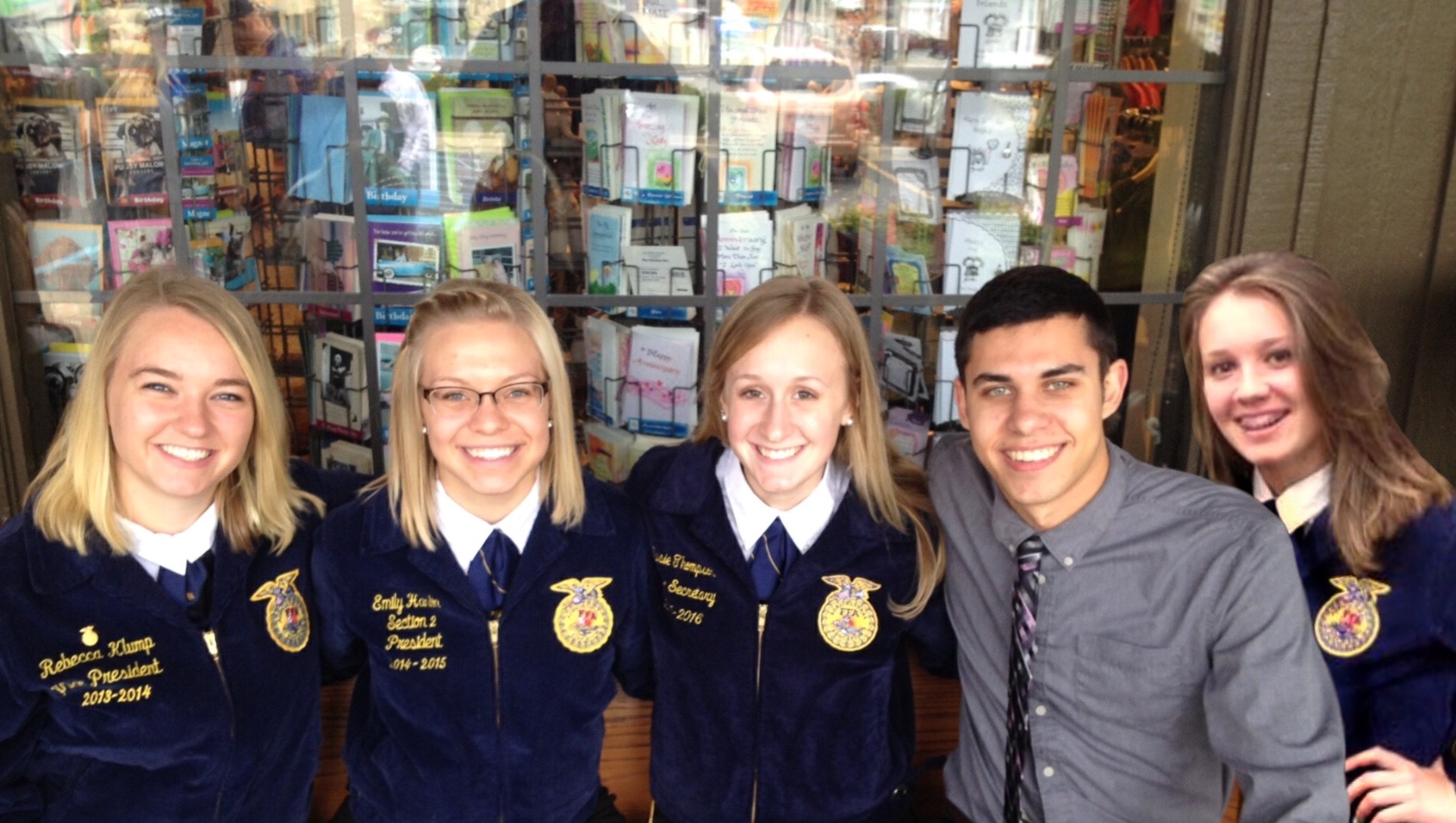Agricultural industry is more than just farming
By Emily Hanlin
WINNEBAGO-BOONE FARM BUREAU AG COMMUNICATIONS AND ADMINISTRATIVE ASSISTANT
I once attended a workshop where the facilitator gave each audience member a scenario on a slip of paper. Each scenario depicted a farmer in a situation where he or she needed outside assistance; assistance was required from someone outside of production agriculture, but still had knowledge of the industry.
Now, we all know that farmers are very well rounded. However, sometimes they run into situations where they don’t know how to fulfill the task at hand.
After we read our scenarios, we were to decide whether the farmer should contact someone involved in animal science, technology, meteorology, botany, bookkeeping, commodity markets, etc. The main idea of this activity was to reinforce the idea that farming is not the only career in agriculture.
In fact, many of my peers in school are studying agriculture related topics and very few of them will end up with a career in production agriculture.
Being that there are almost one million ag-related jobs in Illinois, it is no wonder we are seeing such a rise in interest in the area of agriculture. Illinois is one of the top ranking states in meat packing, soybean processing, dairy manufacturing, corn processing, feed milling, and vegetable processing. Illinois’ rich soil, promising weather, and availability of crop transportation make it one of the top agricultural states in the nation.
While these facts are very impressive, it becomes clear that with agriculture being such a large part of our economy, more and more assistance is needed from those outside of agricultural production to make sure this industry stays as viable as possible.
Less than one percent of the nation’s population claims farming as their occupation. However, 13 percent of the work force in Illinois is in agriculture. The remaining jobs in agriculture can be broken down into seven areas: plant sciences, animal sciences, agricultural mechanics, agricultural business, environmental services, food science, and natural resources.
Those who choose to take on these “remaining jobs” are just as dedicated to the industry as the farmers themselves.
According to two agriculture communications majors at Illinois State University, it is their job to educate the public about where their food comes from. Advocating for the farmers and the food they grow is vital to the industry.
“I’m not the type of person to work in the field,” Rebecca Klump, from Crescent City, Ill. and a junior at Illinois State University, said. “I respect it, but I’m not mechanically inclined enough for tractors or patient enough to work with livestock. I have an agriculture based background and that has led to a passion for the industry, and I want to show the consumer how important agriculture is.”
Her roommate and friend, Susie Thompson, from Burlington, Illinois, shares not only her living space but her goals and values with Klump. Thompson believes bridging the gap between current and future leaders about the agriculture industry is equally important.
“I need to educate the current leaders about agriculture,” Thompson said. “With all the new technology coming out and the concerns consumers have, it’s important to me to educate the current leaders because where do the future leaders get their influence from: current leaders of the industry and that is why I chose to study agriculture communications.”
Students all over are discovering the importance of this industry. They realize that U.S. farmers provide the safest, most reliable and cost effective food source in the world.
Even those who do not come with a background in agriculture are finding their place within the industry. University of Illinois agriculture business major, Reilly Neeson, is from Chicago. She realizes production agriculture isn’t for her. However, she did find a passion for the industry through her high school experiences.
“I never grew up on a farm, and I didn’t think studying ag production in college would have been the best path for me,” Neeson said. “However, I am familiar with business from high school and personal experiences. I took my passion for agriculture and went into agriculture business hoping I will succeed in it.”
Some college students who do have a knowledge and background in agriculture are finding that even if farming isn’t for them, because of the diverse and assorted tasks under these “remaining job” categories, they can still stay involved with the industry they love.
Derek Doeing, of Lisbon, Ill., is a junior transfer at Iowa State University studying agriculture communications.
“As someone who wants to work for an agriculture communications agency,” Doeing said, “I realized that my skills and talents were perfectly suited for advertising and public relations. I didn’t want to disconnect myself from an industry I consider so important, so I knew that even though I might not be the best fit in production, my best efforts could be put forth in this aspect of agriculture.”
There is more to agriculture than cows, plows, and sows. That is what I learned in high school agriculture classes, and as expected, that is what I am experiencing in real life. We, at the Winnebago-Boone Farm Bureau, are forever grateful for all of the work our farmers do, but what maybe isn’t said enough is ‘Thank You’ to all of the nation’s current, and soon to be, agriculturalists.



